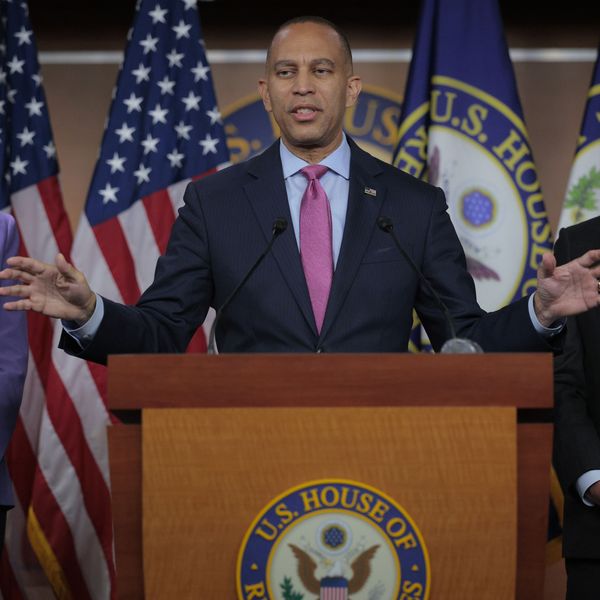The U.S. Supreme Court on Tuesday upheld Ohio's restrictive voting laws, meaning people will not be able to register and cast a ballot on the same day at the start of the state's early voting period.
The court let stand a previous ruling by a federal appeals court, which in August rejected a challenge by Ohio Democrats that sought to reinstate the window of time, known as the "Golden Week," that was first implemented in 2004 but abolished in 2013 by a Republican legislature.
The Democrats have continually argued that doing away with that rule violated constitutional rights of minority voters, who are more likely to make use of the early period.
"Tens of thousands of Ohio voters have relied on Golden Week during the past two presidential elections, and African Americans have done so at far higher rates than other voters," they told the high court.
The state countered that the Golden Week placed a burden on state and local officials, and noted that it had added an extra Sunday to the existing time period of early voting as part of a separate lawsuit settlement with the NAACP, the American Civil Liberties Union (ACLU), and other groups.
Voting hours in Ohio were scrutinized for their disproportionate impact on black residents in the 2004 election, when many people reported waiting in lines for up to 12 hours to cast a ballot. The state then implemented its 35-day early voting period, the first week of which became known as the Golden Week because it allowed people to meet the 30-day deadline for registration and cast their ballots at the same time.
Ohio Democratic Party chairman David Pepper said Tuesday, "Ohio Republicans can keep trying to make it harder for people to vote, but we will continue to fight them at every turn."
SCOTUSblog reported that the Supreme Court allowed the previous ruling to stand "without any noted dissent."
The case is Ohio Democratic Party v. Husted (pdf). It is one of many voting rights cases underway ahead of the 2016 U.S. presidential election.


